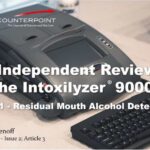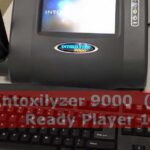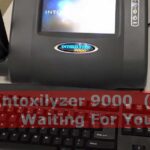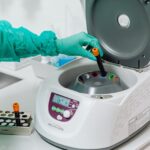Walking to work is fun. In fact very healthy and climate friendly. But sometimes wouldn’t you rather just drive? Unfortunately if your not one of the privileged and had your drivers license suspended or revoked then you have to fight to get it back. Driver License Restoration is the process. So here we go.
If your driver’s license has been suspended or revoked, there are specific steps you need to take to have it reinstated.
The first crucial step is obtaining a copy of your driving record to assess its contents. It is important to review your driving record from any other states as well, as any outstanding tickets or fines from those states can impact your ability to regain or restore a Michigan license.
How can I purchase a copy of my driving record in Michigan?
To obtain your certified complete driving record, you can visit your local Secretary of State (SOS) office, request it online, or order it by mail. Here’s some info on how to purchase a copy of your driving record.
What are types of Drivers License Suspensions?
Definite Suspensions
Definite suspensions are characterized by a specific time frame, indicated by a “from” and “through” date on your driving record. Once the “through” date has passed, you can visit your local SOS office and pay a $125 reinstatement fee in order to restore your license.
Indefinite Suspensions
Indefinite suspensions, on the other hand, do not have a predetermined end date. As of October 1, 2021, new laws have been implemented that modify the circumstances under which a driver’s license can be indefinitely suspended. These new laws might impact the status of your current driving record. Check with an attorney.
In some instances, you may be able to have your license reinstated. You may need to complete a substance abuse assessment and treatment program, as well as fulfill any additional legal requirements.
Certain offenses can result in an indefinite license suspension, such as not providing proof of car insurance, alcohol and drug-related driving offenses, failure to appear in court for a misdemeanor hearing related to a traffic violation, and failure to comply with a judgment.
If you have any of these suspensions on your driving record, it is crucial to address them promptly to avoid further complications.
Failure to appear in court for a misdemeanor hearing related to a traffic violation can lead to a bench warrant being issued for your arrest.
This is indicated on your driving record as an “FAC Suspension.” If you observe this on your record, it is likely that there is an active warrant for your arrest.
Similarly, disregarding or neglecting to pay a civil infraction traffic ticket within the specified timeframe can result in a default judgment.
Failing to comply with this judgment can result in a suspension labeled as “FCJ Suspension.” If you notice this on your driving record, it means that you owe the court additional fees or fines.
It is important to consult the New Clean Slate Driver’s License Suspension Laws and obtain the necessary information to determine if your charges qualify for Driver License Restoration.
To learn more about reading other parts of your record, read the SOS manual How to Read your Michigan Driving Record.
Drivers License and Professional License Restoration -Since 1993- Komorn Law 248-357-2550
What if I have Drug and Alcohol Related Offenses?
For individuals whose licenses were revoked due to Operating While Intoxicated (OWI) offenses, the path to driver license restoration may prove more challenging.
OWI involves driving under the influence of drugs, alcohol, or both. Some examples include:
- Driving with a blood alcohol content (BAC) of 0.08 or higher
- Operating a commercial vehicle with a BAC of 0.04 or
- Higher, and driving with a BAC of 0.02 or higher for individuals under 21 years of age.
If you have an OWI on your record, check if it states “Administrative Denied and Revoked” and note if there is an “eligible for review” date. Your license cannot be restored until this date arrives.
Once the review date comes, the SOS should send you a packet which will include a driver license restoration Request for Hearing and Substance Use Evaluation form (SOS-257/258).
What Happens During a Drivers License Restoration Process in Michigan?
During the reinstatement process, you may be required to complete a substance abuse assessment and treatment program, as well as comply with any additional legal obligations.
Ensuring compliance with the necessary steps and requirements outlined in the New Clean Slate Driver’s License Suspension Laws is crucial to potentially regaining your driving privileges.
A licensed evaluator authorized by the state is responsible for conducting the substance use evaluation, which is a necessary step in the process.
The cost associated with completing this evaluation is approximately $300.
For further information visit the Substance Use Assessments and Classes webpage on the Michigan Department of Health and Human Services website.
How Do I Initiate a Drivers License Restoration Hearing?
In order to initiate a hearing, certain documents must be provided.
These documents include:
- A laboratory report from a 10-panel urinalysis drug screen, which can typically be obtained from local drug screening facilities.
- Additionally, you must provide evidence that supports your sobriety, which may include the following:
- Three to six support letters from individuals familiar with you, such as family members, friends, coworkers, or others who regularly interact with you and can attest to your sobriety.
- Evidence supporting your sobriety may entail demonstrating your participation in a structured program such as Alcoholics Anonymous.
- Every support letter must be notarized, dated, and include the address and phone number of the person who authored it.
The letters should also address specific details, such as the length of time the person has known you, the most recent instance they witnessed your use of alcohol or drugs, the duration of your alcohol/drug-free period, and any notable changes in your attitude resulting from your sobriety.
It is crucial to ensure that the evaluation, 10-panel urine screen, and support letters are all signed and dated within 90 days prior to submitting the Request for a Hearing.
Please note that the countdown of the 90-day period begins when the request is received by the Secretary of State. Time stops running when the SOS receives the request.
What Happens at Your Drivers License Restoration Hearing?
The hearing for your case will be presided over by a lawyer representing the SOS, who will serve as the hearing officer.
On the scheduled date, please make your way to the designated hearing location, which will be an office within the SOS office building. It is recommended that you arrive 15 minutes early to ensure a prompt start. These hearings usually commence promptly and typically conclude within an hour.
While the hearing officer may be physically present at the location, it is more likely that they will join via video conferencing. If this is the case a TV will activate at the scheduled hearing time, and the hearing officer will initiate the impersonal proceedings.
The hearing officer will attentively listen to your testimony and thoroughly examine all the evidence presented before reaching a decision regarding the restoration of your license.
Should I Bring Copies of my Documents to a Drivers License Restoration?
It would be beneficial for you to bring copies of all the evidence you have previously submitted.
The hearing officer may reference any letters or documents you have submitted, so having copies on hand will facilitate your understanding of the discussion.
Additionally, you may choose to bring witnesses, although the hearing officer may state that the information provided in the letters you submitted from these individuals is sufficient.
You should consult with a lawyer and get help help with your driver license restoration. Legal assistance within the Oakland, Macomb, Livingston, Washtenaw and Wayne counties can be found here.
When will I Receive a Decision Regarding my License Restoration?
You will receive a written decision regarding your case through mail or email, based on your preferred method of communication. The timeframe for receiving the decision may vary, as it can be either on the same day as the hearing or it may take several weeks.
In the event that you disagree with the decision, there are specific grounds for appeal:
- Presentation of new evidence that supports your claim, which could not have been discovered prior to the hearing.
- Identification of an “error of law,” indicating that the hearing officer misinterpreted or misapplied the law in your case.
- Identification of a “material mistake of fact,” where the hearing officer made factual errors that significantly impact the final outcome of your case.
Can I Appeal a Decision Regarding my License Restoration?
Should you decide to file an appeal, it will be directed to the local circuit court. It is important to note that appealing such decisions can be intricate, and it is advisable to seek legal counsel during this process.
What if you are an OUI or OWI Habitual Offender
If you have been classified as a “habitual offender,” it means that you have acquired two or more OWI (Operating While Intoxicated) convictions within a span of seven years or three or more convictions within a ten-year period.
Under these circumstances, it is likely that you will be required to attend a minimum of two hearings.
During the first hearing, the officer will either deny your request for license restoration or issue a restricted license.
A restricted license necessitates the installation of a Breath Alcohol Ignition Interlock Device (BAIID) in any vehicle you intend to operate.
It is your responsibility to bear all costs related to the installation of the BAIID. It is crucial to comply with these requirements and provide proof of the BAIID installation to your local Secretary of State (SOS) office before legally resuming driving.
Removing the BAIID without approval from the SOS is prohibited, and driving a vehicle without a BAIID is not allowed.
Additionally, after a minimum period of one year with the BAIID, you will have the opportunity to attend a review hearing (the second hearing) that will determine the full restoration of your driving privileges.
Remember to bring an official BAIID report to this review hearing.
- Michigan House Bill NO. 4391
- Evaluation of Field Sobriety Tests for Identifying Drivers Under the Influence of Cannabis
- THC Detection in Blood: A Comprehensive Review
Does Michigan Still Charge Driver Responsibility Fees?
Enacted in 2003, the DRF law imposed additional annual fees ranging from $100 to $500 for certain driving offenses.
However, as of October 1, 2018, the state has abolished all existing DRF and no longer collects them. Don’t worry, they figured out another way to get it.
If your license has been suspended solely due to DRF and is not expired, your license should have been automatically restored on October 1, 2018, provided there are no outstanding tickets, fines, or other issues.
In the event that your license has expired but it has been less than four years since you held a valid license, you may conveniently renew it either online or at your local SOS office.
Assuming there are no other infractions on your driving record, you will only need to pay the standard reinstatement fee of $125. However, if there are any outstanding matters that require attention on your driving record, it is essential to address them before your license can be fully restored.
On the other hand, if your license has been expired for more than four years since your last valid license, it will be necessary to visit your local SOS office for renewal. Given the significant lapse in time since your last valid license, you will be required to undergo the standard driver’s license application process once again.
What if I missed a Court Date?
If you have missed a court date relating to a driving-related case, it is highly likely that there is currently a warrant out for your arrest. It is imperative that you settle all fines and fees incurred before your license can be reinstated.
Typically, resolving this matter will require a court appearance.
Therefore, it is advisable to have enough money with you during the court proceedings in case the judge allows for on-the-spot payment of fines. Failure to pay in full at the instructed time may lead to potential arrest by the judge.
Recap – Steps to Driver License Restoration
In order to regain your driver’s license, it is important to follow these necessary steps. First and foremost, it is crucial to settle any outstanding fines that you owe.
Once these fines have been paid in full, you will need to pay a reinstatement fee of $125 to reinstate your license.
However, please note that in some cases, you may need to request a hearing with the Secretary of State (SOS) before your license can be restored. To initiate this process, you can utilize the Request for Hearing form provided by the Michigan Department of State.
Please carefully review the instructions on the form to ensure proper completion and submission.
Seek Legal Assistance
To find a limited scope lawyer who specializes in driver license restoration requirements, please access the State Bar of Michigan lawyer directory.
If you or someone you know has been accused of a crime, DUI or needs
Driver License Restoration Legal Help.
Call Komorn Law – Call Now 248-357-2550
Komorn Law Social Media
Recent Posts
- Michigan House Bill NO. 4391
- How Much Does It Cost To Hire a Criminal Defense Attorney?
- What do you do when you are pulled over for suspected DUI?
- Michigan Appeals Court Decision on Cannabis Use and Probation
- Boating in Michigan on Alcohol and Drugs – It’s Illegal
- Alcohol, Drugs, Kayaking – It could be a problem
- Redefining Impairment: Beyond THC Levels in Roadside Testing
- An Independent Review of the Intoxilyzer 9000
- The Intoxilyzer 9000 (part 1)
- The Intoxilyzer 9000 (part 2)
- How DUI Charges Impact Your Child’s Future
- FAQs About Restoring Your Drivers License in Michigan
- Evaluation of Field Sobriety Tests for Identifying Drivers Under the Influence of Cannabis
- Michigan Drivers License Restoration Lawyer
- THC Detection in Blood: A Comprehensive Review
DISCLAIMER
In a legal environment that continues to evolve, it is essential to stay informed and seek guidance from knowledgeable professionals. Before acting on any information you find on the internet, this website, any linked website, any referring website or any verbal or written information consult a licensed attorney. Contact Komorn Law today to discuss your case and learn how we can assist you in navigating the complexities of Michigan’s laws. Consult an Attorney – Remember you’re on the internet.

























